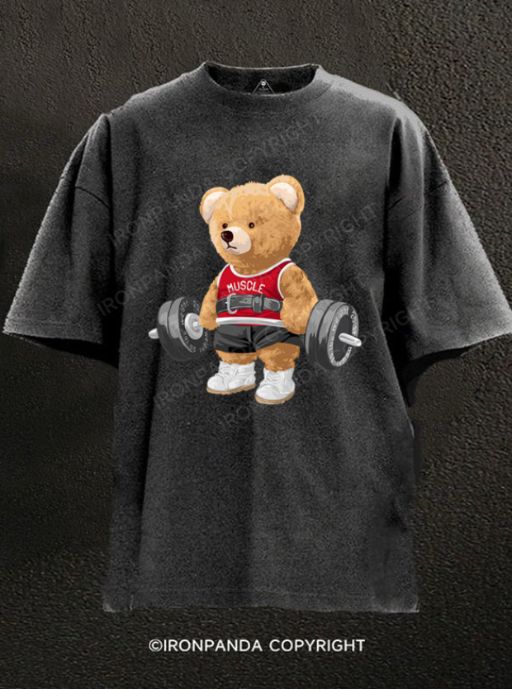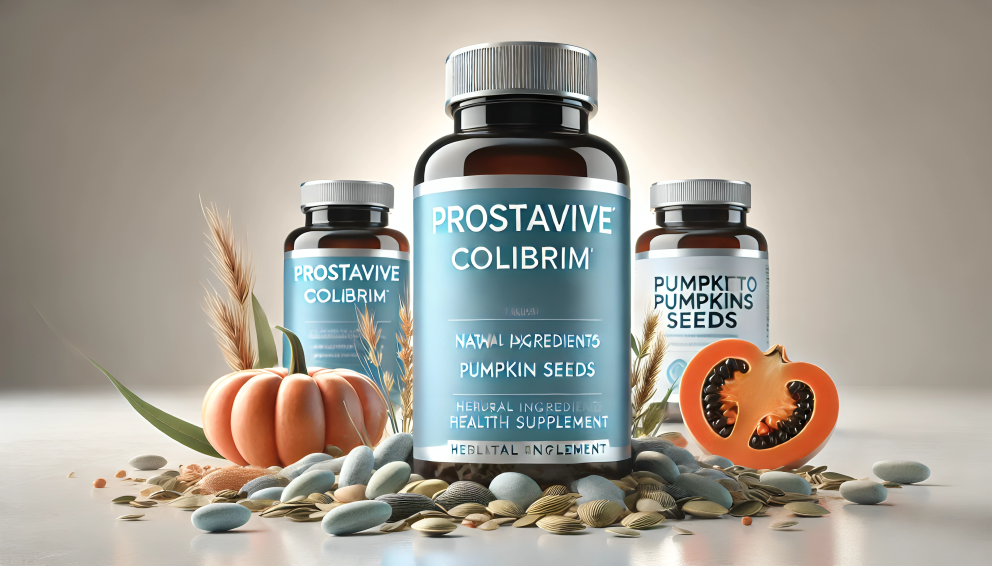Blog
Cornish Cross: The Ultimate Guide to Raising Meat Chickens

The Cornish Cross is a name that stands out in the world of poultry farming. This breed is prized for its fast growth, efficient feed conversion, and excellent meat quality. If you’re considering raising Cornish Cross chickens, you’re about to embark on a journey that promises great rewards. Here’s everything you need to know about these remarkable birds.
What Are Cornish Cross Chickens?
Cornish Cross chickens are a hybrid breed specifically developed for meat production. They are a cross between Cornish chickens and White Plymouth Rocks, combining the best traits of both breeds. Their unique genetic makeup allows them to grow rapidly, reaching market weight in just six to eight weeks.
Why Are Cornish Cross Popular?
The popularity of Cornish Cross chickens stems from their unparalleled efficiency. Farmers prefer them for their:
- Fast Growth: These birds grow significantly faster than heritage breeds.
- High Feed Efficiency: They convert feed into muscle with incredible efficiency, making them cost-effective.
- Tender Meat Quality: Their meat is tender and flavorful, ideal for commercial and home use.
Physical Characteristics of Cornish Cross
Cornish Cross chickens are easily recognizable by their appearance:
- White Feathers: Their bright white plumage gives them a clean, uniform look.
- Broad Chest: A defining feature, the broad chest translates into more meat yield.
- Large Size: They are heavier than most traditional breeds, with some weighing over 10 pounds at maturity.
How to Raise Cornish Cross Chickens
Raising Cornish Cross requires specific care to ensure their health and maximize their potential. Here’s a step-by-step guide:
Choosing the Right Environment
Cornish Cross chickens need a comfortable and clean living environment. Keep these points in mind:
- Adequate Space: Provide at least 2-3 square feet per bird. Crowding can lead to stress and health issues.
- Good Ventilation: Proper airflow prevents respiratory problems and keeps the coop odor-free.
- Dry Bedding: Use pine shavings or straw to keep the area dry and clean.
Feeding Cornish Cross Chickens
A balanced diet is essential for their rapid growth.
- Starter Feed: Use high-protein starter feed for chicks during the first two weeks.
- Grower Feed: Transition to grower feed with a protein content of 18-20% after two weeks.
- Controlled Feeding: Limit feeding to 12 hours on and 12 hours off to prevent overeating.
Watering Tips
Clean, fresh water is a non-negotiable for healthy chickens.
- Constant Access: Ensure water is always available to prevent dehydration.
- Daily Cleaning: Clean the waterers daily to avoid bacterial buildup.
Managing Health Issues
Cornish Cross chickens are prone to certain health challenges due to their rapid growth.
- Heart and Leg Problems: Monitor their activity and weight to avoid strain on their heart and legs.
- Overheating: These birds are sensitive to heat; keep their environment cool during summer.
- Regular Checkups: Inspect your flock for signs of illness, such as lethargy or loss of appetite.
Harvesting Corish Cross Chickens
One of the most rewarding aspects of raising Conish Cross chickens is harvesting.
- Ideal Age: They are ready for processing between 6 and 8 weeks.
- Processing Tips: Ensure humane handling during slaughter and proper sanitation.
Benefits of Raising Crnish Cross Chickens
Why should you invest time and resources in Conish Cross?
- Quick Turnaround: Their fast growth means quicker returns on investment.
- High Meat Yield: Each bird provides a substantial amount of meat.
- Cost Efficiency: Their feed conversion rate minimizes costs while maximizing output.
Challenges of Raising Conish Cross
Despite their benefits, Crnish Cross chickens come with challenges.
- Health Sensitivities: Their rapid growth can lead to physical issues.
- Higher Maintenance: They require more attention to diet and environment compared to other breeds.
- Short Lifespan: They are not suited for long-term raising due to their genetic makeup.
Sustainable Practices for Raising Conish Cross
To ensure a positive impact on the environment and your flock:
- Pasture Raising: Allow access to outdoor spaces for natural grazing.
- Composting Waste: Use bedding and manure as compost for gardening.
- Ethical Treatment: Ensure humane handling throughout their life cycle.
Conish Cross vs. Heritage Breeds
How do Conish Cross chickens compare to heritage breeds?
- Growth Rate: Conish Cross grows much faster than heritage chickens.
- Meat Quality: Heritage breeds offer richer flavor, but Conish Cross provides consistent texture and tenderness.
- Cost: Conish Cross are more cost-effective due to their efficiency.
Tips for First-Time Conish Cross Farmers
Starting with Conish Cross can be intimidating, but these tips can help:
- Start Small: Begin with a manageable number of birds to gain experience.
- Learn Continuously: Stay informed about best practices in poultry care.
- Build a Network: Connect with other poultry farmers for advice and support.
Conclusion
Cornish Cross chickens are a powerhouse breed for meat production. Their fast growth, excellent feed conversion, and high meat yield make them a top choice for farmers and homesteaders. While they come with challenges, proper care and management ensure a rewarding experience. Whether you’re a seasoned farmer or a beginner, Cornish Cross chickens can be a valuable addition to your poultry endeavors.
FAQs
How long do Conish Cross chickens live?
Conish Cross chickens are typically raised for 6-8 weeks for meat production and are not suited for long-term raising.
Can Cornish Cross chickens lay eggs?
While they can lay eggs, their breeding focuses on meat production, and they are not efficient layers.
What is the ideal feed for Conish Cross?
High-protein feed, transitioning from starter to grower feed, is ideal for their rapid growth.
Do Conish Cross chickens need exercise?
Moderate activity is good, but excessive movement can strain their legs due to their size.
Are Conish Cross chickens suitable for beginners?
Yes, but they require diligent care and attention to their diet and environment.
Blog
sodziu: Exploring the Unique Legacy and Influence

Introduction
The term sodziu carries with it a rich and multifaceted legacy that has intrigued scholars, enthusiasts, and casual observers alike. Over time, its significance has evolved, yet its core essence remains deeply rooted in tradition and innovation. This article delves into the origins, cultural impact, and contemporary relevance of sodziu, offering a comprehensive exploration of why it continues to resonate across generations.
The Origins of sodziu
Tracing the beginnings of sodziu reveals a complex interplay of historical and cultural factors. Initially emerging as a concept tied to ancient practices, it gradually transformed into a symbol of unity and creativity. Furthermore, its early adoption by influential communities laid the groundwork for its enduring presence. Consequently, understanding its roots provides valuable insights into its modern-day applications.
The Cultural Significance of sodziu
Beyond its historical roots, sodziu holds profound cultural importance. It has been woven into rituals, art forms, and communal celebrations, serving as a bridge between past and present. Moreover, its adaptability has allowed it to thrive in diverse settings, making it a universal yet deeply personal phenomenon. As a result, its influence extends far beyond its original context.
sodziu in Modern Times
In contemporary society, sodziu has taken on new dimensions. With the advent of technology and globalization, its reach has expanded exponentially. For instance, digital platforms have amplified its visibility, enabling cross-cultural exchanges. Additionally, modern interpretations have infused fresh perspectives, ensuring its continued relevance. Thus, sodziu remains a dynamic and evolving concept.
The Global Impact of sodziu
The worldwide appeal of it cannot be overstated. From Asia to the Americas, its principles have inspired movements, art, and even business strategies. Similarly, its universal themes resonate with people from all walks of life. Therefore, its global footprint underscores its timeless and borderless nature.
Why sodziu Continues to Captivate
What makes it so enduring? The answer lies in its ability to adapt while retaining its core identity. Whether through storytelling, symbolism, or innovation, it speaks to fundamental human experiences. Ultimately, its lasting allure is a testament to its profound and multifaceted nature.
Conclusion
In summary, it represents a unique blend of tradition and modernity, history and innovation. Its cultural depth, global influence, and timeless appeal ensure that it remains a subject of fascination. As we move forward, its legacy will undoubtedly continue to inspire and evolve, cementing its place in the annals of human creativity and connection.
Blog
Made to Move, Made to Inspire – IRONPANDA Gymwear

When it comes to gymwear, performance, comfort, and style are paramount. But for those who push beyond the limits, who seek not only physical strength but mental fortitude, ordinary gym clothes just don’t cut it. IRONPANDA knows that. Their gym shirts and women printed gym shirts are not simply apparel; they are a testament to the drive, the discipline, and the dedication that define true athletes. Every piece of IRONPANDA gymwear is designed to move with you, support you, and inspire you to give your best, every time you step into the gym.
Built for Performance, Crafted for Comfort
At the core of IRONPANDA is a commitment to performance-driven design. When you’re lifting, running, or stretching, the last thing you want to worry about is your clothing. That’s why IRONPANDA gym shirts are made from high-quality, moisture-wicking fabrics that keep you dry and comfortable even during the most intense workouts. The breathable material allows for maximum airflow, preventing overheating while allowing for freedom of movement. Whether you’re powering through deadlifts or pushing the pace on a treadmill, IRONPANDA gear moves with you, not against you.
But it’s not just about fabric technology. Every IRONPANDA gym shirt is engineered for the modern athlete. We blend form and function to deliver the perfect balance of stretch, support, and durability—so you can train harder, move freely, and perform at your best. The result is a piece of apparel that feels like a second skin—snug enough to offer support but flexible enough to move freely through every set, stretch, and stride.
Designed for the Bold: Women Printed Gym Shirts
In a fitness world dominated by basic black leggings and generic gym wear, women printed gym shirts from IRONPANDA stand out for their empowering designs and bold statements. Every stitch celebrates the strength, resilience, and determination of today’s gym warrior. These shirts don’t just fit your body—they fuel your fire. Every graphic and slogan is more than just decoration; it’s a celebration of strength.
The women printed gym shirts are available in various styles and designs, each carrying a message of empowerment. From bold statements like “Strong Women Lift” to minimalistic yet powerful imagery, these shirts provide not only comfort but confidence. When you wear an IRONPANDA women printed gym shirt, you’re not just dressing for a workout—you’re making a statement about who you are and what you represent.
We design these shirts to flatter the female body while maximizing performance. They feature the same high-quality, performance-enhancing fabrics as the men’s gym shirts, so every woman can move freely and comfortably—no matter how intense her workout gets. Whether you’re squatting, deadlifting, or enjoying a post-workout stretch, the women printed gym shirts are there to support your form and elevate your confidence.
Made to Inspire, Made to Move
IRONPANDA’s gymwear is about more than just fitness—it’s about a mindset. These shirts are built with purpose, made to inspire and push athletes to be their best. Every time you pull on an IRONPANDA gym shirt or a women printed gym shirt, you’re not just wearing something to train in—you’re wearing something that represents your drive, your ambition, and your goals.
The bold graphics and empowering messages serve as a reminder that your fitness journey is about progress, not perfection. Whether it’s a motivational slogan that reminds you to “Keep Pushing” or a sleek design that reflects your inner strength, IRONPANDA gymwear encourages you to keep going, even when the going gets tough. It’s the perfect blend of performance and motivation, designed for those who are not afraid to push their limits.
Quality You Can Trust
In the world of gymwear, quality matters. The last thing any athlete wants is to invest in apparel that won’t stand the test of time or the intensity of their workouts. IRONPANDA understands this. That’s why we craft every piece of clothing with high-quality materials built to last. From the stitching to the fabric, we carefully consider every detail to ensure your gym shirts and women’s printed gym shirts not only perform well but endure the toughest conditions.
Whether you’re lifting weights, running long distances, or participating in a high-intensity interval training (HIIT) session, you need gear that can keep up. With IRONPANDA, you get gymwear that maintains its form and function, even after countless washes and intense workouts. Durability, comfort, and performance are at the heart of everything IRONPANDA does.
A Community of Like-Minded Athletes
When you choose IRONPANDA, you’re not just choosing a brand—you’re joining a community of athletes who share the same relentless drive and passion for fitness. IRONPANDA celebrates athletes of all kinds, from seasoned professionals to those just starting out on their fitness journey. Each piece of apparel is a reminder that you’re part of something bigger, a movement of people who believe in the power of consistency, hard work, and resilience.
The brand actively features inspiring stories from athletes around the world, showcasing how fitness has transformed their lives and the role IRONPANDA plays in their training. When you wear IRONPANDA, you’re not just wearing a shirt—you’re connecting with a global network of individuals who are as committed to progress as you are.
Final Thoughts
At the end of the day, IRONPANDA is more than just gymwear—it’s a symbol of strength, determination, and resilience. Our gym shirts and women’s printed gym shirts move with you, deliver ultimate performance, and inspire you to push through every obstacle in your way.
IRONPANDA is for those who don’t settle for mediocrity. It’s for those who show up, give it their all, and never back down. It’s gymwear made for those who are truly made to move.
Blog
davante adams takes a swipe at the bears.

Davante Adams, the star wide receiver for the Las Vegas Raiders, recently made headlines after taking a subtle yet pointed jab at the Chicago Bears. His comments have since ignited discussions among fans and analysts alike, further fueling the competitive spirit of the NFL.
The Context Behind Adams’ Comments
During a recent interview, Adams was asked about facing different defenses in the league. In response, he casually mentioned how some teams, like the Bears, fail to present a significant challenge compared to others. Although he did not elaborate extensively, his tone suggested a lack of regard for Chicago’s defensive capabilities.
Reactions from the NFL Community
Unsurprisingly, Adams’ remarks did not go unnoticed. Bears fans quickly took to social media to defend their team, while analysts debated whether his comments were justified. Some argued that Adams was simply stating his opinion based on past performances, whereas others viewed it as unnecessary disrespect.
Historical Rivalries and Player Trash Talk
This is not the first time a high-profile player has taken a shot at an opposing team. Trash talk has long been a part of the NFL’s culture, often adding an extra layer of excitement to games. However, given Adams’ stature in the league, his words carry significant weight.
How the Bears Might Respond
The Bears, known for their resilient defense, now have additional motivation to prove Adams wrong when they face the Raiders. Coaches and players may use his comments as bulletin-board material to fuel their preparation.
The Bigger Picture for Adams and the Raiders
For Adams, this could be a strategic move to mentally unsettle future opponents. Meanwhile, the Raiders will look to capitalize on his confidence as they push for a playoff spot.
Final Thoughts
While davante adams swipe at the Bears may seem minor, it underscores the psychological battles that define the NFL. As the season progresses, all eyes will be on how this narrative unfolds.
-

 Blog3 months ago
Blog3 months ago鲁Q 669FD: Understanding Vehicle Registration in China
-

 Blog3 months ago
Blog3 months agoSwatapp.me المانجا: Your Gateway to the World of Manga
-
Tech6 months ago
IPv6 Internet Is Broken
-

 Tech2 months ago
Tech2 months agoWepbound: The Future of Web Development
-

 Business4 days ago
Business4 days agoUnveiling adsy.pw/hb3: Revolutionizing Content Marketing Strategies
-

 Tech5 months ago
Tech5 months agoScamalytics: Revolutionizing Scam Detection in the Digital Age
-

 Tech5 months ago
Tech5 months agoWebmxhd: Revolutionizing Digital Connectivity
-

 Health3 months ago
Health3 months agoprostavive colibrim Benefits, Uses, and How It Works
